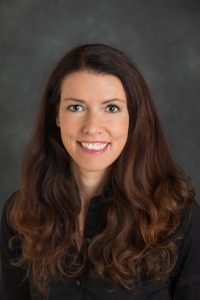Karen Lloyd
University of Tennessee
2021-2022 Distinguished Lecturer
The mysterious deep subsurface biosphere: What sustains one of the largest, slowest ecosystems on Earth?
The oceanic subsurface contains a vast microbial ecosystem whose metabolic processes drive key biogeochemical cycles. These microbes are often from evolutionary branches on the tree of life that have never been characterized or described in a laboratory. Therefore, new methods have had to be developed to learn about these elusive communities in deep subsurface sediments. Methods such as direct identification of a suite of biomolecules (DNA, RNA, proteins, lipids, and metabolites), coupled to isotopic tracer incorporation and geochemical measurements have produced a more in-depth view of the role that these microbes play in Earth systems. From this work, a picture has emerged of a diverse ecosystem that may be growing orders of magnitude more slowly than life at the surface. Although it is slow, this life is metabolically active, contributing to the breakdown of ancient organic matter in ways that differ from those found in surface organisms.
Recent work has identified zones where microbes have enough energetic resources to grow faster than the cellular decay rate. This suggests a model for adaptive selection to ultra-slow growth in long-term burial in marine sediments. Rather than simply being accidentally alive for thousands of years while riding a one-way conveyer belt to their deaths, it is possible that sediment microbes are adapted to this subsurface niche space. The payoff for long-term ultra-low activity is that rare events such as slumping, turbidite flows, or mud volcanoes enable a return to shallow sediments where higher quality substrates enable natural selection to occur.
LECTURE SCHEDULE
- September 8, 2021 – University of Colorado Boulder, Boulder, CO
- October 1, 2021 – University of Minnesota Duluth, Duluth, MN
- December 1 – 2, 2021 – Oregon State University, Corvallis, OR
- April 15, 2022 – Lehigh University, Bethlehem, PA
- June 7 – 9, 2022 – Bigelow Laboratory for Ocean Sciences, East Boothbay, ME







